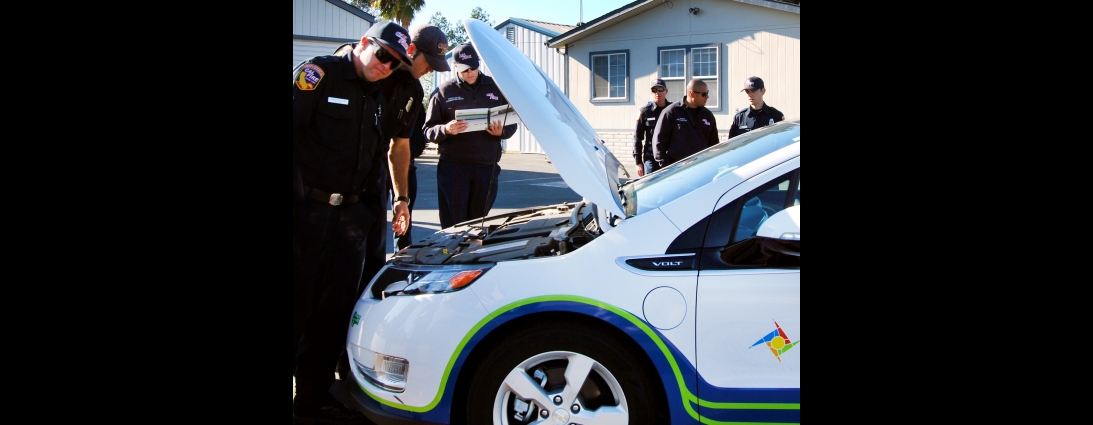

As greater numbers of alternative fuel vehicles (AFVs) enter onto California's roadways, two diverse areas of the workforce are in need of additional training according to a statewide survey of fire chiefs and transportation fleet managers.
Under a grant from the Department of Energy, CCSE and the California Clean Cities Coalitions recently published an assessment of current training on new vehicle technologies and fueling systems among firefighters and fleet staff technicians. Currently, there are some 100,000 hybrid-electric, plug-in electric and CNG vehicles in California, more than any other state, that might require emergency incident response or be part of a fleet and need servicing.
The survey found that nearly half of the 79 fire chiefs responding report a lack of such training among their staff. The 85 fleet managers surveyed said they face increasing training needs driven by state and federal mandates to adopt AFVs. The assessment also involved in-depth interviews with key AFV training organizations and industry stakeholders to develop recommendations.
Needs for first responders
While fire chiefs desire AFV first responder training, some 52% said their departments are not offering their staff enough training. They cited barriers such as funding limitations, staff scheduling and training availability.
For example, comprehensive courses that occur over several days and involve hands-on vehicle drills can conflict with firefighters’ 24-hour shifts and may be interrupted by emergency needs. The report concludes that as increasing numbers of alternative fuel vehicles come on the road, alternative fuel training may need to become a required course for first responders, including not only firefighters, but also paramedics, police officers and other emergency personnel.
Needs for fleet technicians
Fleet managers reported their needs for AVF training are generally on the horizon as existing vehicles go out of manufacturer’s warranty and as new clean vehicle policies for fleets go into effect. Currently, AFVs make up only about 25% of existing fleets statewide, but that number is expected to grow rapidly over the next few years as California implements mandates for cleaner vehicle use.
Report recommendation for Coalitions
The assessment recommends that Coalitions play a greater role in providing online information for fire departments and fleet operations about training needs, opportunities and available grants for funding.
Read the full report: Needs Assessment for Alternative Fuel Vehicle Training in California
